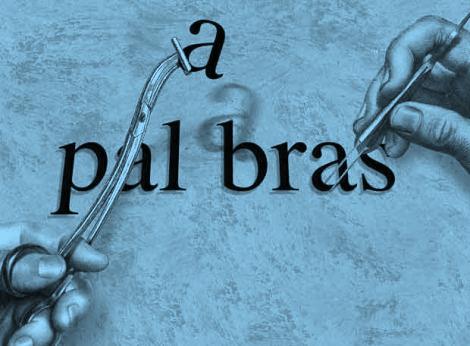Course syllabus
SPANISH 342/742: Spanish Word Formation
Semester 2, 2017

Points:
SPANISH 342 is worth 15 points while SPANISH 742 is worth 30 points.
Prerequisites:
15 points from SPANISH 201, 278, 319, 321, 377, 378
Convenor:
Dr Eduardo Piñeros, Arts 2 Room 404A, c-e.pineros@auckland.ac.nz, +64 9 373 7599 ext. 87126
Office hours:
Monday, 2-3pm, or by appointment.
Course Description and Objectives:
SPANISH 342/742 provides students with the theoretical tools they need to analyse the internal structure of Spanish words so that they can achieve significant gains in the breadth and depth of their vocabulary. Key morphological concepts are explained and practiced in order to uncover links among words of the same class as well as variations among words of different classes. Morphological analysis is used to unravel how Spanish exploits a variety of derivational processes to generate word stems and how these are further enriched with inflectional information to create contextual variants.
Class times and rooms:
Monday, 9-11am, Commerce A Room G14 (Lecture)
Thursday, 2-3pm, HSB Room 508 (342 and 742 shared tutorial)
Thursday, 3-4pm, HSB Room 512 (742 exclusive tutorial)
Workload:
SPANISH 342 and 742 are taught concurrently. They share a two-hour lecture and a one-hour tutorial per week. Additionally, SPANISH 742 has an exclusive tutorial every week. Attendance at all lectures and tutorials is essential in order to understand theoretical linguistic concepts and to practice morphological analysis. Each lesson builds on the content of previous lessons; thus, it is crucial that you review and practice on a regular basis. All in all, with classes and personal study, you should spend 10 hours per week on Spanish 342 and 20 hours per week on Spanish 742.
Main weekly topics:
Week 1 - Introduction, morphemes, and words
Week 2 - Roots, nominal and verbal inflections
Week 3 - Derivational morphemes
Week 4 - Prefixation and suffixation
Week 5 - Compounding
Week 6 - Parasynthesis and word classes
Week 7 - Nouns
Week 8 - Gender and number
Week 9 - Adjectives and their inflection
Week 10 - Verbs, person, number, tense, and mood
Week 11 - Oral presentations
Week 12 - Test
Resources:
Basic readings
Gómez Torrego, Leonardo. 2011. Análisis morfológico. Teoría y práctica. Madrid: SM, 288pp.
Further readings:
-Alcoba, Santiago. 1999. La flexión verbal. Gramática descriptiva de la lengua española. Madrid: Espasa Calpe. p. 4915-4991.
-Almela Pérez, Ramón. 1999. Procedimientos de formación de palabras en español. Barcelona: Editorial Ariel.
-Ambadiang, Théophile. 1999. La flexión nominal. Género y número. Gramática descriptiva de la lengua española. Madrid: Espasa Calpe. p. 4843-4913.
-Lacuesta, Ramón Santiago y Eugenio Bustos Gisbert. 1999. La derivación nominal. Gramática descriptiva de la lengua española. Madrid: Espasa Calpe. p. 4505-4594.
-Pena, Jesús. 1999. Partes de la morfología. Las unidades del análisis morfológico. Gramática descriptiva de la lengua española. Madrid: Espasa Calpe. p. 4305-4366.
Spanish 342/742 website
The website for this course is a rich repository of electronic resources that will help you study and practice what you learn in class. To access it, go to Canvas (https://canvas.auckland.ac.nz) and log in using your UPI and Netaccount password.
Course Assessment:
Spanish 342 |
Spanish 742 |
||
|
Written assignments (2 @ 15%) |
30% |
Written assignments (2 @ 7.5%) |
15% |
|
In-class tests (2 @ 25%) |
50% |
In-class tests (2 @ 15%) |
30% |
|
Oral presentation |
20% |
Oral presentation |
15% |
|
|
|
Essay (4,000 words) |
40% |
Course summary:
| Date | Details | Due |
|---|---|---|